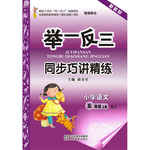题目内容
【题目】New research shows that the healthy brain may hold memories which we don’t even remember. In The Journal of Neuroscience, experts report that the brain might hold more memories than people realize, but that restoring those memories can be tricky.
Memory Check
First, participants saw a list of 120 real words mixed with 80 nonsense words. Next, they saw another word list and tried to remember which words had been on the first list. Meanwhile, their brains were scanned with functional magnetic resonance(核磁共振) imaging.
While participants reviewed the second word list, their brain scans showed more activity in a certain brain area -- the posterior(后部的) median temporal lobe(脑叶) -- when they saw words that had been on the first word list.
But participants didn’t always remember that they’d seen those words before. Sometimes, theygoofedand said they hadn’t seen those words before. In other words, the posterior median temporal lobe was more sensitive to memory than participants’ consciousness, the researchers note.
“Album”of Memories
Another part of the median temporal lobe also attracted the scientists’ attention. The anterior(前面的)median temporal lobe showed more activity when participants thought they were seeing a new word, the study shows.
So, why did participants sometimes mess up their memory recall? It might be that two parts of their brain -- the posterior and anterior median temporal lobes -- might be dueling(决斗) for the upper hand in deciding what actually happened in the past, the study notes.
In other words, memories might have a photo album in the brain, but sometimes we forget what’s on all of the photo album’s pages.
【1】A person sometimes has difficulty recalling because .
A. he is unconscious when he gets his memories
B. he forgets what is on the pages of the photo album
C. there are two parts in his brain dueling for the upper advantage
D. the anterior median temporal lobe is more active than the posterior
【2】According to the passage the researchers are .
A. studying how a person remembers things
B. studying a magazine The Journal of Neuroscience
C. examining posterior and anterior median temporal lobes
D. doing experiments to find out what disturbs a person’s memory
【3】What did the experts discover when the participants saw the words on the first word list appear on the second word list?
A. The instrument worked faster.
B. The participants were more conscious.
C. The posterior median temporal lobe was more active.
D. The anterior median temporal lobe was more active.
【4】The underlined wordgoofedin the fourth paragraph means .
A. made a mess of B. made an answer for
C. made out of D. made the best of
【答案】
【1】C
【2】D
【3】C
【4】A
【解析】试题分析:文章讲了科学家们做的实验,研究什么影响人类的记忆。
【1】C细节理解题。由While participants reviewed the second word list, their brain scans showed more activity in a certain brain area -- the posterior(后部的) median temporal lobe(脑叶) -- when they saw words that had been on the first word list.可知大脑记忆分为两个部分,所以选C。
【2】D推理判断题。由 experts report that the brain might hold more memories than people realize可知专家们正在做研究,由科学家们后来做的实验,可推理出科学家想知道什么影响人们记忆,所以选D。
【3】C细节理解题。由The anterior(前面的)median temporal lobe showed more activity when participants thought they were seeing a new word可知前面的比后叶活跃,所以后叶比前面的安静,所以C正确。
【4】A词意猜测题。由第四段可知把词汇整理成一个专辑,所以应该是大量的词汇,所以选A。

 举一反三同步巧讲精练系列答案
举一反三同步巧讲精练系列答案 口算与应用题卡系列答案
口算与应用题卡系列答案